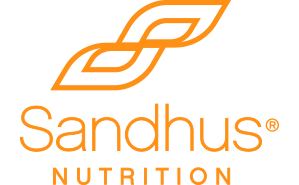Have you ever wondered why some people seem to effortlessly burn calories while others struggle with weight gain? The secret lies in your metabolism, the engine that powers your body's calorie-burning abilities. In this blog, we will learn how you can increase your metabolism to burn more calories. Let's discover the secret of achieving your weight loss goals and improving your overall health.
Fueling Your Fire: Nutrition and Metabolism
To improve your metabolism and optimize calorie burning, it's essential to take the right fuel through smart foods. One factor to consider is the thermic effect of food (TEF), which refers to the energy your body uses to digest, absorb, and process the food you eat. By understanding TEF, you can make strategic decisions to increase the number of calories you burn during digestion.
One effective way to enhance your metabolism is by including high-protein foods in your diet. Protein has a higher thermic effect compared to carbohydrates and fats, meaning it requires more energy to digest and metabolize. Include healthy protein options such as chicken, turkey, lean beef, fish, eggs, and plant-based sources like legumes in your meals. These protein-rich foods can give your metabolism a natural boost, helping you burn more calories throughout the day.
In addition to protein, certain beverages can have metabolism-boosting properties. Green tea, for instance, has substances that are thought to boost fat burning and improve body heat production, known as thermogenesis. Consuming green tea regularly can provide a natural, calorie-burning effect that can contribute to your overall metabolic rate.
While focusing on protein and green tea, it's also important to maintain a balanced and nutritious diet. Include a variety of superfoods like fruits, vegetables, whole grains, and healthy fats in your meals to ensure you're getting essential nutrients. Avoid heavily processed and sugary foods, as they can negatively impact your metabolism and overall health.
Get Moving: Exercise and Metabolism
When it comes to increasing your metabolism and burning more calories, physical activity is a powerful tool. Regular exercise, especially strength training, can have a significant impact on your metabolic rate. One of the key advantages of strength training is its ability to build muscle mass.
Unlike fat, muscle is highly metabolically active, meaning it burns more calories even when you're at rest. By adding exercises such as weightlifting or bodyweight workouts to your routine, you can build more muscles and boost your metabolism.
In addition to strength training, high-intensity workouts can also be highly effective for boosting your metabolism. These workouts involve alternating between short bursts of intense exercise and periods of rest or lower intensity. When you have intense bursts of activity, your body works harder and needs more energy, which increases your metabolic rate. Moving your body regularly through activities such as running, swimming, cycling, walking, or gardening can boost your metabolic rate.
For maximum benefits from exercise, include a mix of cardio, strength training, and high-intensity workouts in your fitness routine. This variety helps target different muscle groups and energy systems, leading to a more comprehensive boost in metabolism. Additionally, staying consistent with your exercise routine is crucial for maintaining the benefits over time.
Sleep and Hydration: Boosting Your Metabolism
Believe it or not, the quality of your sleep and your hydration levels can have a significant impact on your metabolism. Getting enough quality sleep is crucial for a healthy metabolism. Lack of sleep messes with your hormone balance, especially those linked to appetite and metabolism. This disruption can lead to weight gain and a slower metabolic rate.
Studies have shown that insufficient sleep is linked to an increased risk of obesity and metabolic disorders. Aim for 7-9 hours of quality sleep each night to support your metabolism and overall health.
Proper hydration is essential for optimal metabolic function. Water plays a crucial role in numerous metabolic processes, including digestion and the transportation of nutrients throughout your body. When you are dehydrated, these processes can become less efficient, which can negatively affect your metabolism.
To keep your metabolism boosted, aim to drink plenty of water throughout the day. The amount of water you should drink each day varies based on factors like age, activity level, and climate. As a general guideline, aim for around 8 cups (64 ounces) of water daily.
Water has a unique property known as the "thermic effect of water." This refers to the fact that your body expends energy to heat up the water you consume to body temperature. While the effect is relatively small, every little bit counts when it comes to boosting your metabolism and burning more calories.
Spice Up Your Life: Foods and Breakfast for Metabolism
When it comes to boosting your metabolism, certain spices can be your secret weapon. Spices like pepper and turmeric, contain compounds that have been found to temporarily increase your metabolic rate. These spices not only add a kick of flavor to your meals but also boost your metabolism.
Consider sprinkling some pepper on your scrambled eggs or adding a dash of turmeric to your soups and stews. If not try some good quality tested supplements containing turmeric and pepper. These small additions can make a big difference in improving your metabolism.
Having a healthy breakfast is crucial for boosting your metabolism and giving your body the energy it needs. Skipping breakfast can slow down your metabolism, make you feel excessively hungry later, and increase the risk of over-eating. Remember, breakfast is the most important meal of the day!
For a metabolism-boosting breakfast, go for a balanced food with protein, healthy fats, and complex carbs. Eggs, Greek yogurt, and cottage cheese are protein-rich foods that help build muscles and maintain a higher metabolic rate.
Healthy fats from sources like nuts, seeds, avocados, MCT oil from coconut oil or olive oil can provide sustained energy and support metabolic functions. Complex carbohydrates like whole grains, fruits, and vegetables provide fiber, vitamins, and minerals that support overall health and digestion.
Don't forget, adding metabolism-boosting spices and having a healthy breakfast can help your body burn calories more effectively. So, spice up your life and start your day with a metabolism-boosting breakfast for a healthy and energetic start!
Supercharge Your Metabolism: Sustainable Weight Loss Tips
Losing weight requires creating a calorie-deficit diet, which means burning more calories than you consume. While fad diets may promise quick results, they often lead to temporary weight loss or weight gain. Instead, focus on long-term changes to your eating habits and lifestyle.
Focus on a balanced diet, exercise regularly, get enough sleep, stay hydrated, and add variety to your meals to boost your metabolism. These strategies work together to support sustainable weight loss and a healthy lifestyle.






